Jurist in Residence Judge Robert W. Pratt
This September, The Hon. Robert W. Pratt visited BU Law as its first Jurist in Residence.
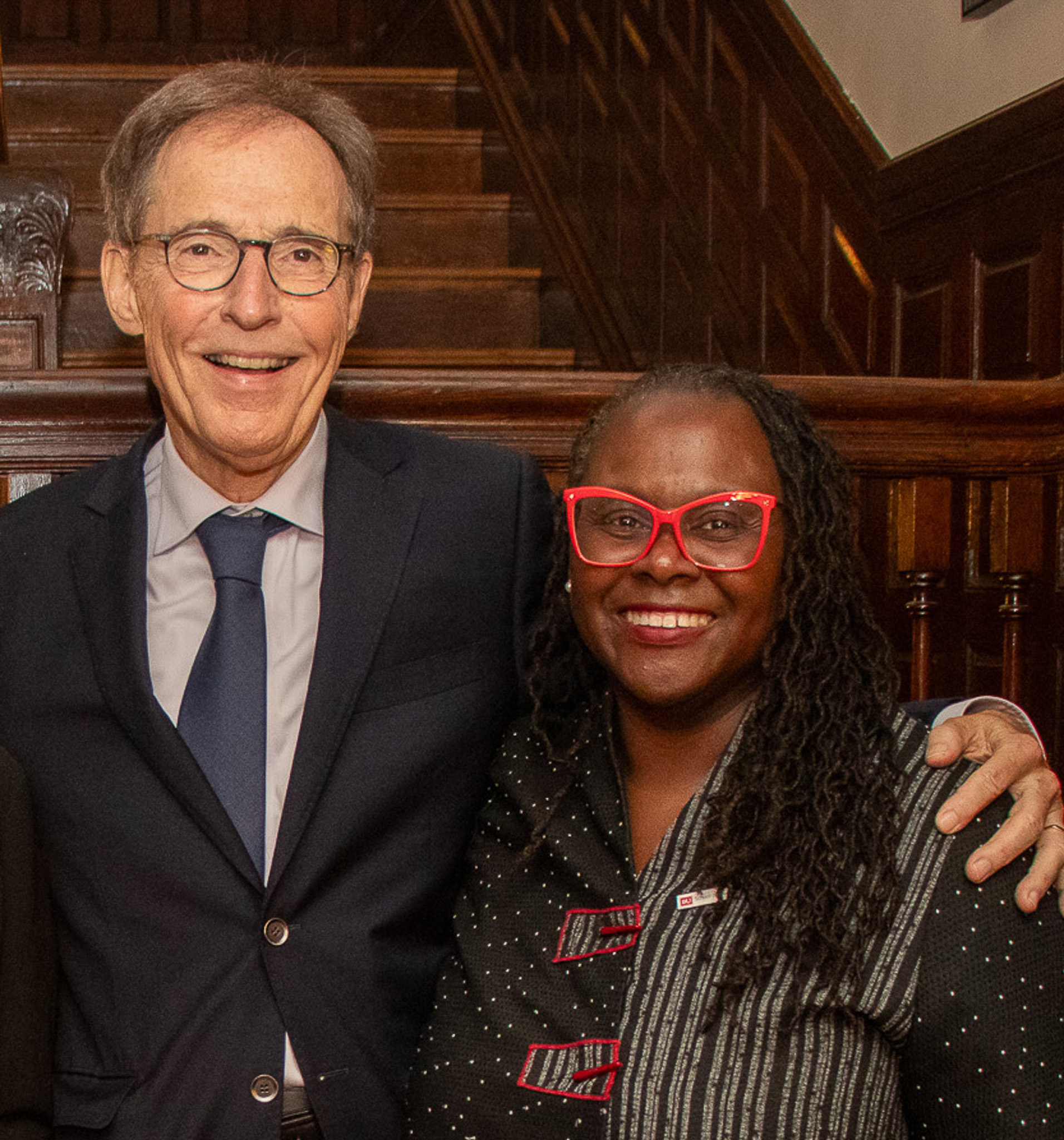
Jurist in Residence Judge Robert W. Pratt
This September, Hon. Robert W. Pratt visited BU Law as our first Jurist in Residence.
From September 16 to 27, 2024, the Honorable Robert W. Pratt joined Boston University School of Law as our first ever Jurist in Residence. Over the course of his two-week residency, Judge Pratt engaged with the BU Law community, sharing his expertise with students, faculty, and staff. Judge Pratt, an inactive United States District Judge for the Southern District of Iowa, served on the bench for over 26 years after being nominated by President Bill Clinton in 1997.
During his time at BU Law, Judge Pratt took every opportunity to engage with the community—making appearances at many different events, meeting with students and faculty, speaking on panels and lectures, sitting in on classes, joining workshops, and much more—to share his background and deliver insights into the judiciary.
“It was extraordinary having Judge Pratt around, holding open his vast professional experience to our community,” says Jessica Silbey, associate dean for intellectual life and professor of law. “He was here only two weeks, but it was a packed two weeks, and we are grateful to him for enriching our community. In addition to being a brilliant lawyer and jurist, he is truly a kind and affable gentleman. We learned much from him. But we also had a lot of fun.”
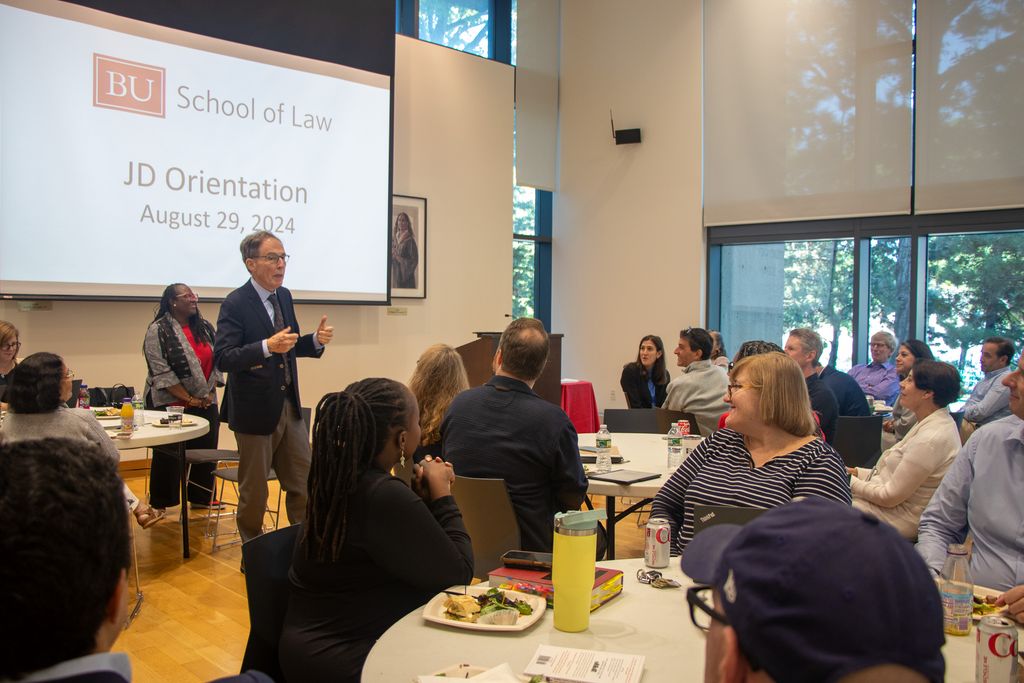
The community at BU Law and the ambitions of its students left a mark on Judge Pratt. “What was most impressive to me and what stuck in my mind during the two weeks I was there, is that 58% of the students came to the law school because they wanted to ‘change the world,’” he says. “It was most interesting to learn their attitudes. They’re very idealistic, and I found confirmation in that when I would visit with them.”
During his time at BU Law, Judge Pratt had breakfast with JD and LLM students, discussing the role that lawyers and judges play in creating a more equitable legal system. He answered the students’ questions on everything from cases he had heard in his career to his best clerking advice.
“What struck me was not just how generous Judge Pratt was with his time with our students, but how earnest and engaged he was,” says Jen Taylor McCloskey (’05), executive director of advocacy and legal skills programs. “He really wanted our law students to come away from these conversations empowered to choose a path that would allow them to give back, to help others, and to be a force for good in whatever type of legal work they decide to do.”
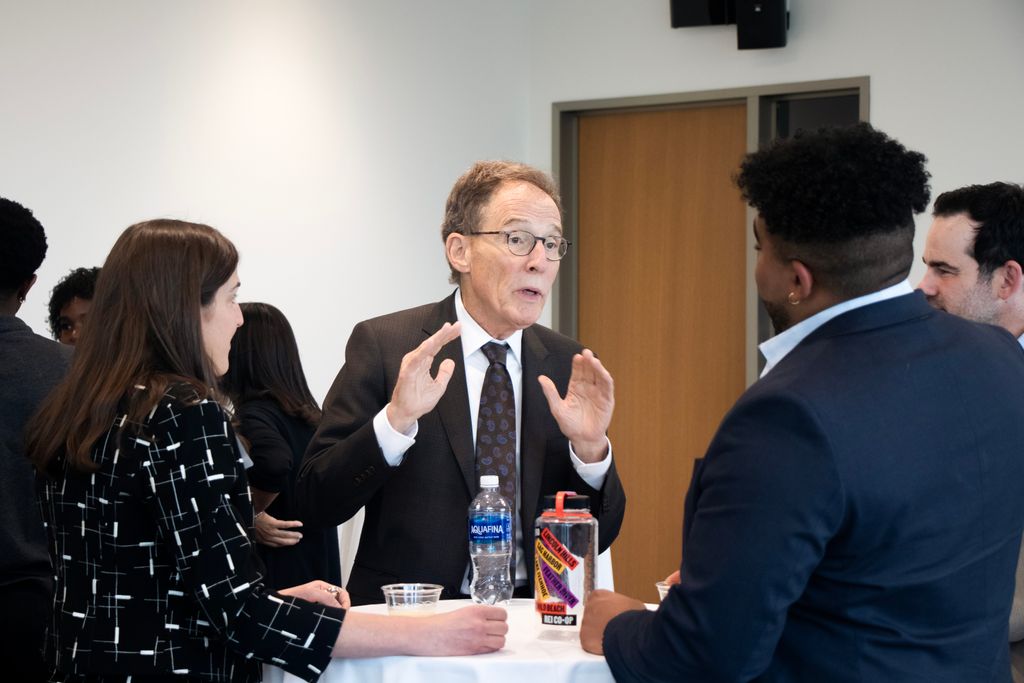
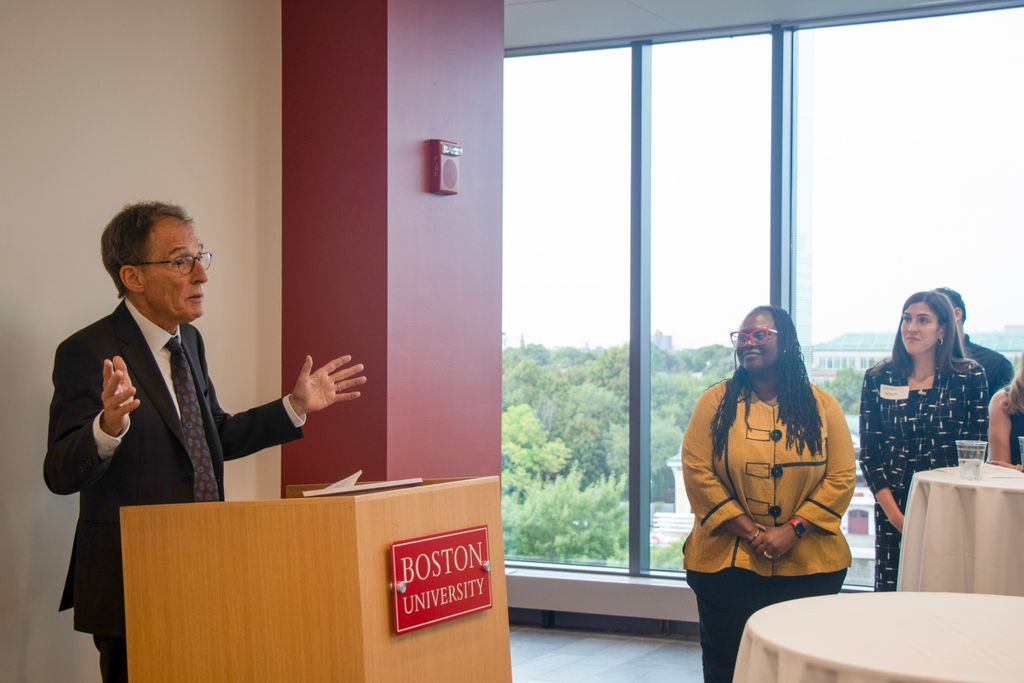
Judge Pratt also attended the ASPIRE and Public Interest Scholar Reception, providing insights into the current judicial system and guiding students on how to make an impact with their legal degree.
“In his remarks, Judge Pratt provided invaluable advice to the students about creating a meaningful life in the law,” says Professor Caitlin Glass, visiting lecturer and clinical instructor in the Antiracism and Community Lawyering Practicum. “He urged them to do something that would make them feel at the end of the day like they had made a contribution in some way. I think his words will resonate with students regardless of their individual paths and the roads they travel after leaving BU Law.”
At the reception, Judge Pratt talked with many students, faculty, and staff, offering personal anecdotes from his career and connecting with the BU Law community.
“Judge Pratt’s life in public service inspired the students, and they enjoyed getting to know him at the reception, around the law school, and at numerous other events during his visit,” says Professor Claire Bishop Abely, senior lecturer in the Lawyering Program.
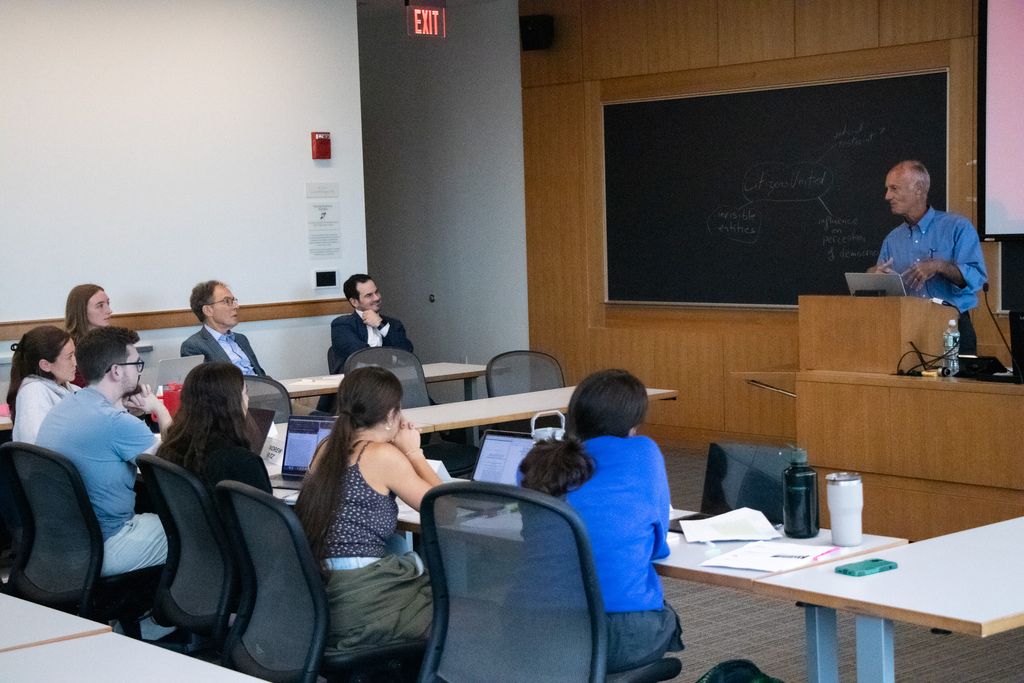
In addition to events and meetings, Judge Pratt also sat in on several classes and clinical seminars, including Professor Robert Thomas’ Contemporary Issues class, Professor Jade Brown’s Consumer Economic Justice clinical seminar, and Professor Jed Shugerman’s torts class, which covered the Federal Employees Liability Act that Judge Pratt had experience working with during his career.
“I had just wonderful discussions with faculty members in and outside of the classroom,” says Judge Pratt.
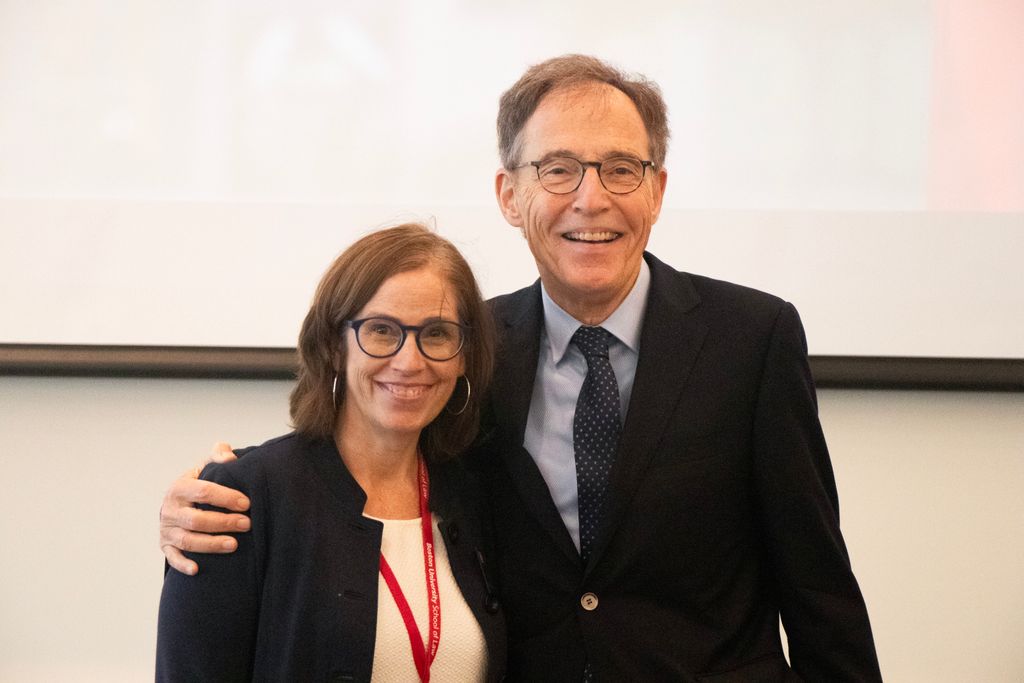
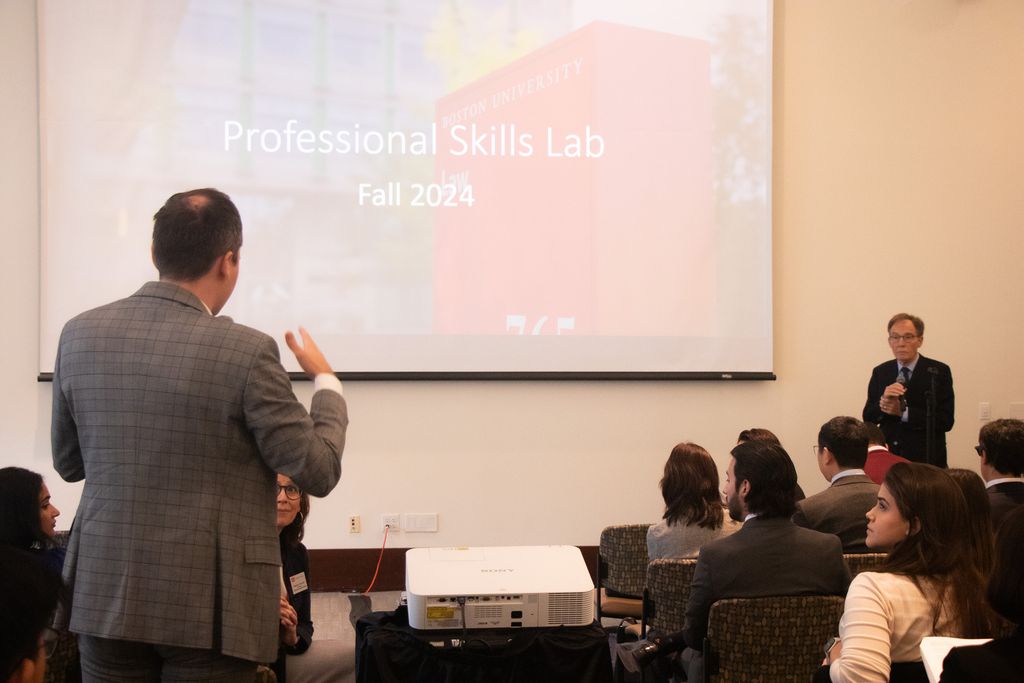
At the end of his first week in residency, Judge Pratt presented to the BU Law LLM students during their Professional Skills Lab. He took questions from students in the audience and from Maureen Leo, director of international graduate programs.
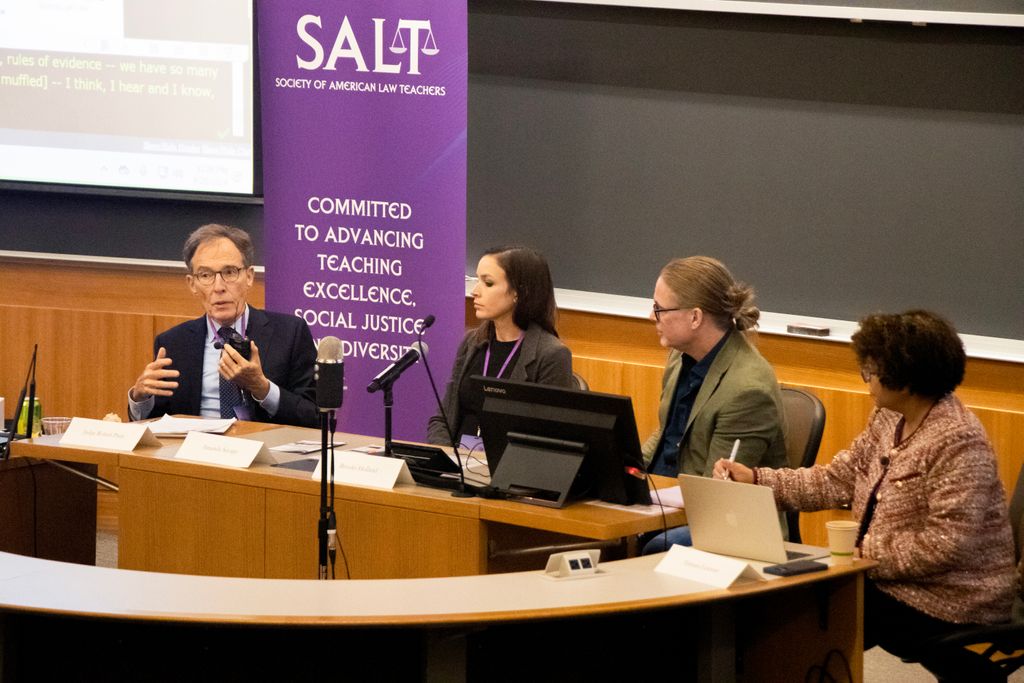
On September 20 and 21, BU Law hosted the Society of American Law Teachers conference, where Judge Pratt spoke on a panel about “Redefining Justice: Conversations on Criminal Justice Reform” with Amanda Savage, Brooks Holland, and Tamara Lawson, dean of University of Washington School of Law. During the panel, Judge Pratt spoke on federal sentencing, guiding the law professors in the room through reform topics in the criminal justice system.
In the following week, Judge Pratt organized a breakfast event for students featuring Laura Mate, vice chair of the US Sentencing Commission, and moderator Professor Gerald Leonard, to discuss sentencing in the context of federal criminal law.

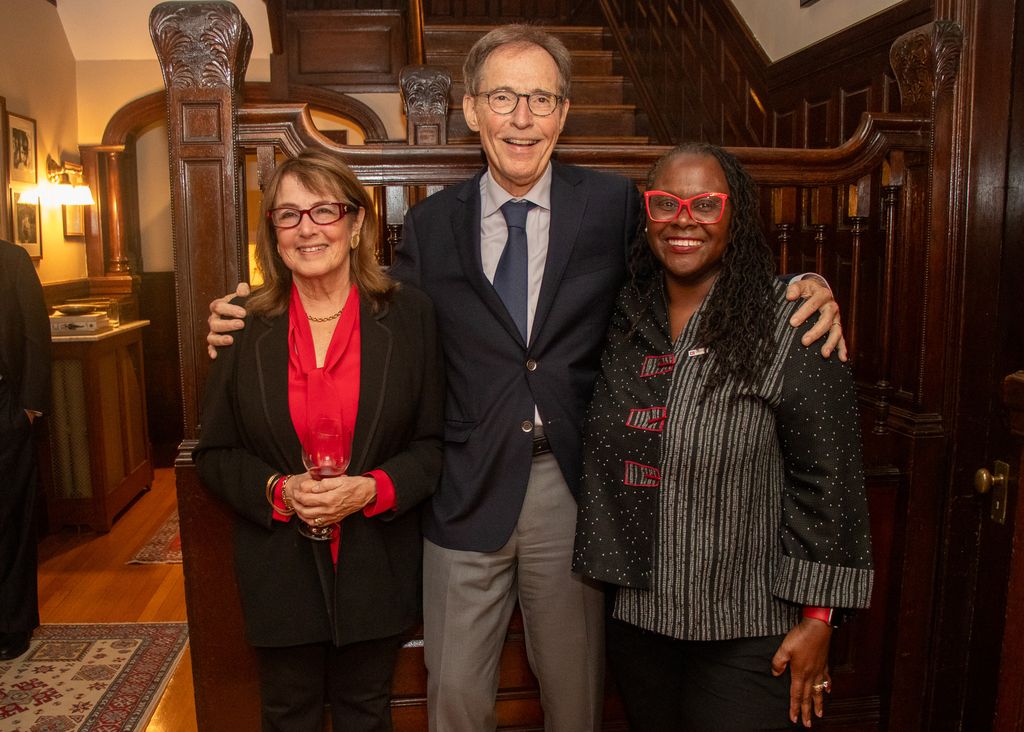
Judge Pratt also attended a reception hosted by Hon. Nancy Gertner, a former United States district judge of the United States District Court for the District of Massachusetts and colleague. Also in attendance were Judge Margaret R. Guzman (’92), Judge Angel Kelly, Judge Julia E. Kobick, Judge Patti B. Saris, and Judge Mark L. Wolf, all for the US District Court, District of Massachusetts, as well as Associate Justice Peter Rubin, Massachusetts Appeals Court.
“There was laughter and joking and just a great time,” says Judge Pratt.
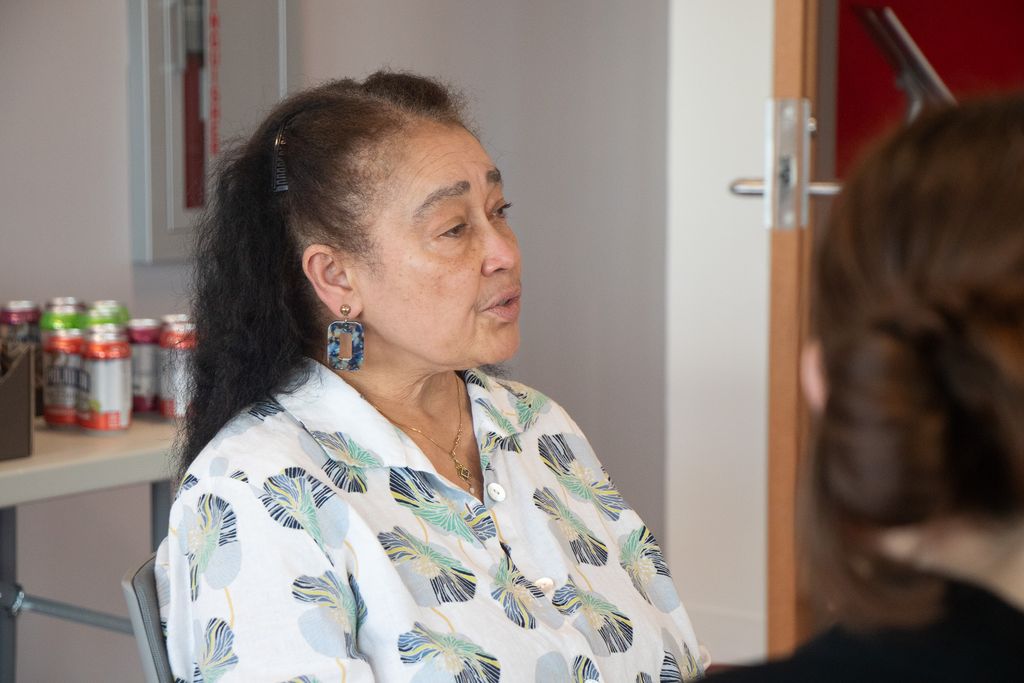
Hon. O. Rogeriee Thompson (’76)

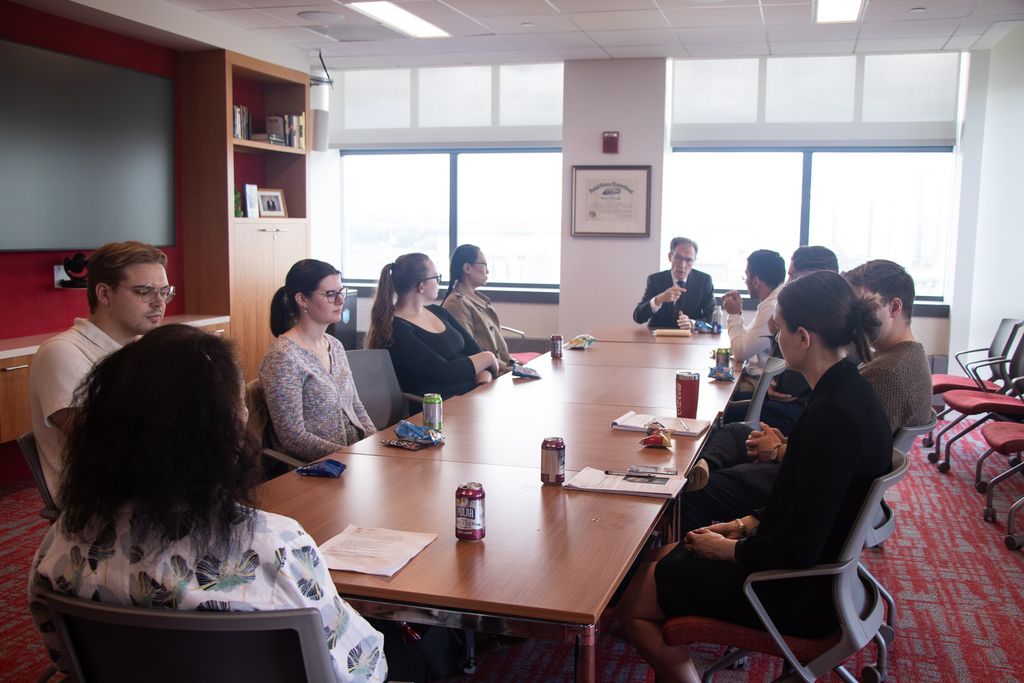
Judge Pratt also attended a lunch for JD and LLM students interested in clerkships and appellate judicial work with Judge O. Rogeriee Thompson (’76), circuit judge of the US Court of Appeals for the First Circuit. The conversation was moderated by Emily Bruemmer, assistant director for judicial clerkships and private sector employment in the Office of Career Development and Public Service.
During his visit, Judge Pratt emphasized to students the importance of experiential learning and the “value of practicing their skills while still in law school – through clinics, skills competitions, externships, and judicial internships,” says Jen McCloskey. “He encouraged them to look beyond their coursework at the other opportunities for engagement that BU Law offers.”

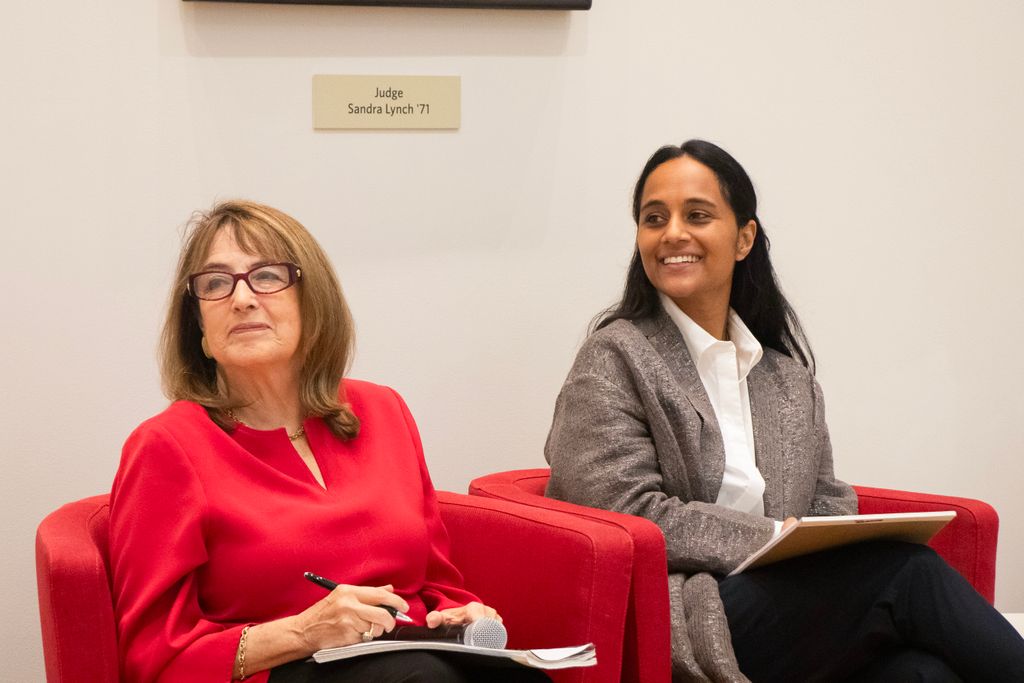
Hon. Nancy Gertner and Professor Zohra Ahmed.
On September 26, BU Law held its annual Shapiro Lecture featuring a panel discussion between Hon. Robert W. Pratt, Hon. Nancy Gertner, and Hon. John McConnell Jr., focused on the ethical obligation to improve the law and moderated by Associate Professor Zohra Ahmed.
“Judge Pratt’s time here during his Jurist in Residence visit has been incredibly valuable to me,” says Alejandro Perez (’25), executive editor of the Boston University Law Review. Perez attended several of the Jurist in Residence events but found the Shapiro lecture to be particularly impactful as he will be clerking for panelist Judge McConnell next year. “It was refreshing to hear their perspectives on reform to the sentencing guidelines and the criminal justice system–it has made me even more excited to begin my clerkship!”
The law has to be the way we get along with each other, the way that we share our gifts.


Judge Pratt with Wally the Green Monster and Professor Erika George, associate dean for equity, justice, and engagement.
After the Inauguration of Boston University’s 11th President, Dr. Melissa L. Gilliam, Judge Pratt and members of the BU Law community attended the Boston Red Sox vs. Tampa Bay Rays game at Fenway Park to watch President Gilliam throw out the first pitch.
“I love baseball,” says Judge Pratt. “Having the evening, wearing my BU Law Gilliam number 11 shirt, meeting with BU alums, and looking out on the green monster as the sun goes down over Fenway Park––it’s hard to top that.”
Reflecting on his Jurist in Residence visit, Judge Pratt borrows from Chief Justice William H. Rehnquist’s experience as a Jurist in Residence, describing his time at BU Law as “Tons of fun and lots of learning as well.” Judge Pratt also enjoyed Boston beyond the BU campus with his wife of 53 years, Rose Mary. Together they attended Mayor Michelle Wu’s performance of ‘Rhapsody in Blue’ for the Boston Symphony Orchestra and a tour of the Boston Public Library.
“It was an experience that I wish every judge and every lawyer could have, because I learned so much, and I took away from it so much,” says Judge Pratt. “I’m inspired by both the faculty and the students, because they seem to really care about each other. They have a joint message, which comes from the top with Dean Onwuachi-Willig: ‘the law has to be something more than a way to make a living.’ The law has to be the way we get along with each other, the way that we share our gifts. And I think that was the way I took the faculty and the students; they were sharing with me, and I was sharing with them. It was just an inspiring occasion for me and my wife.”
Likewise, the Boston University School of Law community is enriched for having welcomed Judge Pratt as our first Jurist in Residence.
“Judge Pratt has been a true inspiration for so many of us in the law. His career reflects both his great legal mind and his deep commitment to justice, fairness, and compassion,” Dean Angela Onwuachi-Willig noted. “Beyond his numerous rulings, Judge Pratt stands out for his deep empathy and understanding of the human condition, qualities that have made him a voice for justice in the truest sense.”